Vessel Ballast Water Management: Getting the Numbers Right
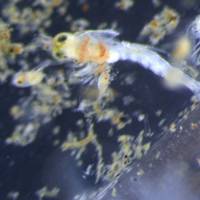
It was never going to be realistic to expect treated ballast water to have zero viable organisms on discharge.The G8 guidelines that define the type approval process for ballast water treatment systems were initially agreed at the IMO before any systems had actually been developed.The IMO had already been working on the issue of invasive species being transferred around the world in ballast water for a couple of decades. It was on the radar back in the 1970s. At MEPC 31 in 1991…
Ballast Water Technology: Getting the Numbers Right
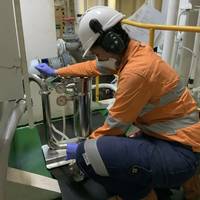
It was never going to be realistic to expect treated ballast water to have zero viable organisms on discharge.The G8 guidelines that define the type approval process for ballast water treatment systems were initially agreed at the IMO before any systems had actually been developed.The IMO had already been working on the issue of invasive species being transferred around the world in ballast water for a couple of decades. It was on the radar back in the 1970s. At MEPC 31 in 1991…
NOAA to Award $28 Million to Tackle Marine Debris
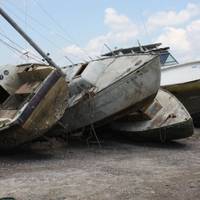
The Department of Commerce and NOAA announced the availability of up to $28 million across two funding opportunities to address marine debris throughout the coastal U.S., Great Lakes, territories and Freely Associated States. These two Fiscal Year 2024 funding opportunities are part of NOAA’s Climate-Ready Coasts initiative under President Biden’s Bipartisan Infrastructure Law, and allow NOAA to support impactful, large-scale marine debris removal projects, as well as the installation…
Q&A: Uwe Köhler, CEO, Sailing Cargo
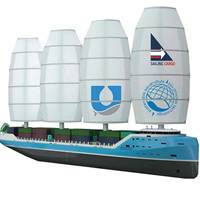
Is it true that Sailing Cargo is building the world’s first mobile aquaculture ship?That is correct. We at Sailing Cargo Inc. want to change the future of global fishing while proving the value of clean shipping. Our team of experienced professionals is building the world’s largest zero emission sailing vessel in order to respond to the increasing global demand for healthy salmon and protein in the most efficient and environmentally sustainable manner. The conventional fish farming…
Global Reef Expedition: Mission to Tonga
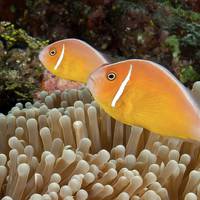
Assessing the health of coral reefs in the Kingdom of TongaHealthy coral reefs provide critical ecosystem services for millions of people globally, but with climate change and anthropogenic stressors, the landscape of these habitats is regularly shifting. The science and conservation community has realized the importance of baseline studies to help track how these precious reef ecosystems are changing. The Khaled bin Sultan Living Oceans Foundation launched the Global Reef Expedition…
GloFouling Partnerships Project in East Indian Ocean
"The introduction of invasive aquatic organisms into new marine environments not only affects biodiversity and ecosystem health, but also has measurable impacts on a number of economic sectors" said Lilia Khodjet El Khil, head of the International Maritime Organization (IMO)-led GloFouling Partnerships project.The GEF-UNDP-IMO GloFouling Partnerships project has concluded two workshops, one in Madagascar and one in Mauritius (19-21 August), two of 12 lead partnering countries whose aim is to protect marine biodiversity by addressing biofouling.During the first workshop, held in Antananarivo, Madagascar, Captain Jean Edmond Randrianantenaina, added that "these invasive species can also pose a threat to public health through consumption of fish products".
EC Launches Blue Economy Report
European Commission launches the second edition of its Blue Economy Report during the 2019 European Maritime Day conference in Lisbon.Commissioner for Environment, Maritime Affairs and Fisheries Karmenu Vella said: “Coastal regions are home to 214 million people and generate 43% of EU GDP. Today’s report confirms the blue economy’s role as an exciting growth sector, with opportunities both in established sectors like tourism and shipbuilding, and in emerging areas like ocean energy or the blue bioeconomy.""Yet we also know that blue economy start-ups and small companies often struggle to get their good ideas off the ground. That is why…
IMO Kicks-Start GloFouling Project
International Maritime Organization (IMO), the UN body, announced that a major five-year project to help protect marine biodiversity has been kick-started at a global workshop at IMO Headquarters in London, United Kingdom (18-20 March).The IMO-executed GloFouling Partnerships project will address bioinvasions by organisms which can build up on ships’ hulls and other marine structures. The project is a collaboration between the Global Environment Facility (GEF), the United Nations Development Programme (UNDP) and IMO.Representatives from 12 lead partnering countries, four regional organizations, IOC-UNESCO, the World Ocean Council and…
IMO Launches Global Project to Protect Marine Biodiversity
The GloFouling Partnerships project - a collaboration between the Global Environment Facility (GEF), the United Nations Development Programme (UNDP) and the International Maritime Organization (IMO) - has been launched.The new international effort to combat the negative environmental impacts of the transfer of aquatic species through ships will address the build-up of aquatic organisms on a ship’s underwater hull and on other marine mobile infrastructure.The introduction of invasive aquatic organisms into new marine environments not only affects biodiversity and ecosystem health, but also has measurable impacts on a number of economic sectors such as fisheries, aquaculture and ocean energy.
Freeport of Riga Shortlisted for ESPO Award
The ESPO Award 2016 will be presented to the port authority that succeeds the best in safeguarding and further upgrading the nature in the port area, both on land and at the waterside. "ESPO is proud to present the shortlisted projects, before the winner is announced during the official Award Ceremony at the Egmont Palace in Brussels on 9 November," says a statement. Freeport of Riga Authority (Latvia) has been shortlisted for the ESPO Award 2016. The territory of the Freeport of Riga lies on the Daugava river estuary and includes natural green and blue areas, which occupy about 1/3 of the port area. "I am truly proud to present for a wider audience this uncommon and inspiring project…
High Correlation of Biomass to Species Diversity in Northern Chukchi Sea - BOEM Study
Last summer, researchers began a five year study to monitor biodiversity in the Arctic Chukchi Sea from an ecosystem perspective, looking at microbes, whales and everything in between. health and critical ecosystem services that contribute to human life. Monitoring it improves our ability to interpret and forecast changes. The unprecedented effects of climate change combined with strong seasonal cycles and increasing human activities in the Arctic make this region particularly important to monitor. In August 2015, the AMBON team of researchers from the University of Alaska’s School of Fisheries and Ocean Sciences, the University of Maryland…
More than Mega: Diversity Defines the Dredging Industry
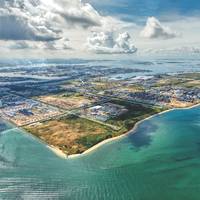
The mantra of recent times has been the worldwide trend to ‘mega’. Mega container ships created the need for mega ports which required mega dredging projects. These in turn demand mega dredging vessels. All this is true but disregards another development: the consolidation of the major dredging contractors into larger companies with long-term strategies that have resulted in diversification. Today’s major dredging contractors do more than dredge. They are partners in the development of a project.
EU Focus on Maritime Emissions, Invasive Species
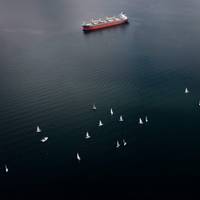
The second and last Environment Council meeting under the Lithuanian Presidency of the Council of the EU took place in Brusse today, December 13, chaired by Minister of Environment of Lithuania Valentinas Mazuronis. The Commission was represented by Environment Commissioner Janez Potočnik and Commissioner for Climate Action Connie Hedegaard. The Council discussed the state of play in the ongoing legislative work in the field of environment. In the morning session ministers exchanged views on the Regulation on the Monitoring…
USGS Disaster Relief for Hurricane Sandy
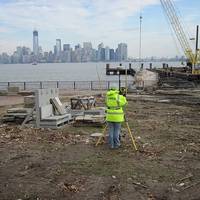
The Department of the Interior recently announced the release of $475.25 million in emergency disaster relief funding to repair, rebuild and restore impacted areas in the aftermath of Hurricane Sandy. This will also provide investments in scientific data and studies to support recovery in the region. “The funding we are making available will help repair and rebuild facilities, reopen roads and restore services in order to get our parks, refuges, beaches and public lands fully operational and open to the public this summer,” said Sally Jewell, Secretary of the Interior.
Sustainable Ocean Summit Final Program Available
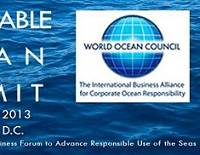
The SOS 2013 program will take on the issues that are challenging access to ocean areas and resources by responsible industry operators. Click here to see the program. This global gathering of the diverse ocean business community is not a conference to discuss the issues, enjoy some networking and hope someone else will do something. The SOS is a working meeting to advance industry leadership and collaboration on shared ocean sustainability risks and opportunities through WOC programs. ■ A keynote address by Admiral White, Oceanographer of the U.S.
Sustainable Ocean Summit 2013
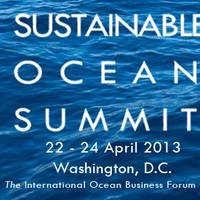
The Sustainable Ocean Summit 2013 (SOS 2013), organized by the World Ocean Council (WOC), is an international ocean business community gathering dedicated to industry leadership and collaboration in developing solutions to ocean sustainability challenges. Washington D.C. The theme of SOS 2013 is “Oceans 2050–The Ocean Business Community and Sustainable Seas.” The SOS is designed for the diverse range of ocean industries: shipping, oil and gas, fisheries, aquaculture, tourism, offshore renewable energy…
EU: New Inland Waterways Protection Guidelines
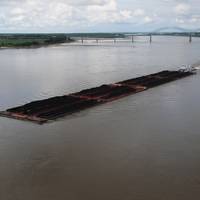
The Commission is issuing new guidelines on inland navigation and nature protection to assist this important sector in applying EU environmental legislation. The guidelines – "Inland waterway transport and Natura 2000 – sustainable inland waterway development and management in the context of the EU Birds and Habitats Directives" – explain how best to ensure that activities related to inland navigation are compatible with EU environmental policy in general and nature legislation in particular.
Ocean Acidification Putting Coastal Jobs at Risk
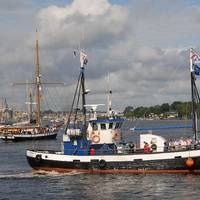
A NOAA study finds that ocean acidification is accelerated in nutrient-rich areas putting marine resources, coastal economies, at risk. Carbon dioxide released from decaying algal blooms, combined with ongoing increases in atmospheric carbon emissions, leads to increased levels of ocean acidification, and places additional stress on marine resources and the coastal economies that depend on them, according to a new study published by NOAA. Ocean acidification occurs when the ocean absorbs carbon dioxide from the atmosphere or from the breakdown of organic matter…
"The Future of Our Oceans"
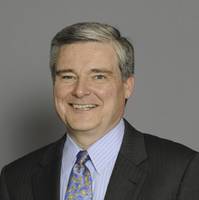
On April 23, 2012, Dr. Stephen M. Coan delivered remarks entitled “The Future of Our Ocean”, part of the Open VISIONS Forum Lecture Series and presented at the Regina A. Quick Center for the Arts, Fairfield University, Fairfield, Conn. Following is the text of his speech. Water sustains life on Earth, and the health of our oceans, lakes, rivers, streams and marshlands, which cover 70% of the planet’s surface, is critically important to global economic and human health. Imagine this vast environment and what it could mean for us if we were able to better harvest food…
BWT: the Cost of Great Lakes Invasive Species Damage
Research project shows invasive species cost the Great Lakes millions of dollars. Although there has been growing recognition among researchers and policymakers that shipborne invasive species cause a considerable economic toll, this environmental problem often goes unaddressed because of the difficulty in quantifying annual impacts on ecosystem services. However, a new paper by researchers from the University of Notre Dame, the University of Wyoming and the Technical University of Delft in the Netherlands assigns a dollar figure on the cost to the Great Lakes from invasive species that originate in the ballast water of ocean-going vessels. David M. Lodge and John D. Rothlisberger of Notre Dame, David C. Finnoff of Wyoming, and Roger M.
EMU to Study Coastal Defense Structures
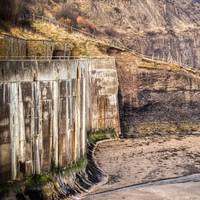
EMU Limited announces biodiversity and coastal defense engineering research. Marine consultancy and survey specialists EMU Limited, will collaborate with global engineering consultancy Arup and the Russell Group, University of Southampton on research into using sustainable engineering to further the ecosystem services offered by intertidal communities living on coastal defence structures. The work will seek to achieve engineering for biodiversity and biodiversity for engineering.










